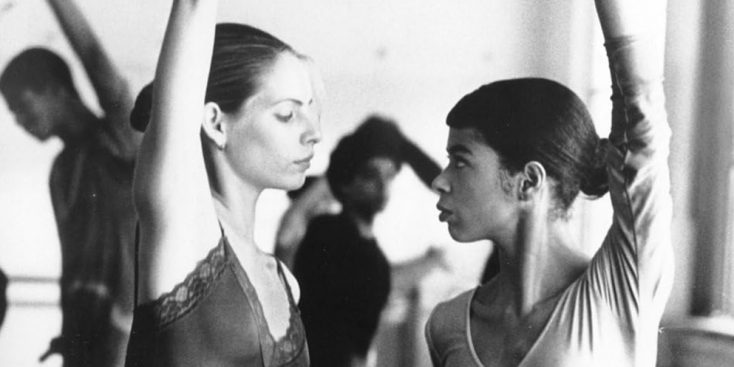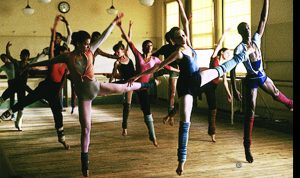By JUDY SLOANE
Front Row Features
HOLLYWOOD-What do Liza Minnelli, Al Pacino and Wesley Snipes have in common? They all attended the High School of Performing Arts in New York City, a unique institution that was created in 1948 to encourage young people to follow their artistic dreams. It became the first high school in America devoted to training students in drama, dance and music.
In 1979, the creative team of producer Alan Marshall and director Alan Parker successfully captured the essence of the school – the dreams, insecurities, youthful energy and enthusiasm. They cast eight young performers to star in the movie. One of them was Irene Cara, who portrayed the aspiring singer Coco Hernandez. I interviewed her in November 1994 about the iconic film.
Unfortunately, on November 25, 2022, at the age of 63, Irene Cara died of heart disease at her home; she also had diabetes. She left behind so many wonderful films, TV performances and music.
Q: Had you heard of the High School of the Performing Arts before the film?
Irene Cara: I had gotten into the High School of the Performing Arts for Junior High. Unfortunately, I decided against going because I was working at the time and one of their big rules is they don’t want you to work while you’re studying. In a strange way, I always felt that from the film I did actually go to the school in a roundabout way.
Q: Are you similar to your role of Coco? I read that Alan Parker fashioned the character after you.
Irene Cara: I think maybe in terms of her being diverse, having the ability to dance, act and sing. That’s the only thing they patterned after me. I really wasn’t that arrogant! I was actually pretty shy and quiet, except when I had to be loud.
Q: Were there a lot of improvisations in the movie?
Irene Cara: A lot of the scenes were improvised. They were based around a basic theme, but I think Alan was very smart to capture from the kids what was already there. A lot of times he would even let the cameras run without telling us. A lot of what he caught in terms of interactions was impromptu.
Q: Was there any competition amongst the eight stars?
Irene Cara: I guess to a certain degree. But that was part of the whole competitive edge that is part of show business.
Q: In the movie, the drama department seemed so separate from the music and dance departments – did you feel that?
Irene Cara: They had the most scenes. They seemed to have the focal point in terms of the drama and the storyline.
Q: Your character went through the audition from hell. Have you ever had such a dreadful experience?
Irene Cara: Not in terms of nudity, but I’ve had plenty of dreadful auditions where I’ve just dealt with stupid people who ended up demeaning me in other ways.
Q: How comfortable were you filming that type of scene?
Irene Cara: I wasn’t comfortable at all! It was difficult, but Alan and the producer Alan Marshall were sensitive enough to block off the set and make sure it was done in private.
Q: How was it working with Alan Parker?
Irene Cara: I think he did a great job. I know there was some bad blood between Barry (Miller, who played Ralph Garci/Raul Garcia) because Alan was very hard on him, but he got a great performance out of him. I don’t know what the inside scoop to that was. Alan was very respectful to me.
Q: I read most of the cast was disappointed with the Fame number. Were you?
Irene Cara: I thought it was really short for the time that we put into it, but the energy that was captured was good.
Q: Did you record all the songs before you started?
Irene Cara: No, actually we did the music afterwards, except for the ballad Out There on my Own. That was done before, but the Fame number was done afterwards.
Q: Then what were you dancing to?
Irene Cara: A Donna Summers’ record. I think it was Hot Stuff.
Q: At the time you’re quoted as saying after seeing the movie, ‘My actual performance in the film and my performance are two different things.’ Do you remember what you meant by that?
Irene Cara: They cut so much. It’s not like theatre where you have control of your performance. You don’t have control of your performance in a film because you never know what it’s going to end up looking like.
Q: What scene stands out for you?
Irene Cara: The scene at the piano and the scene afterwards in the cab. That was the scene that you had the most insight into Coco, where her dreams were and what she was about. You really got a sense of who Coco was, other than that she’s a colorful figure.
Q: What was your reaction when you saw the movie for the first time in 1980?
Irene Cara: It was hard. I didn’t really like it the first time. It’s hard to see yourself on the screen. But after I saw it two or three times I realized, ‘God, this is a great film.’
Q: Why didn’t you go on to do the TV series?
Irene Cara: I’m the kind of actress that really likes to keep doing new characters and new parts, and even though I was widely criticized for it I just chose not to do it and go on to other films.
Q: What was it like singing Fame at the Academy Awards?
Irene Cara: It was very exciting. I was surprised by how calm I was. I think everybody around me was so damned nervous it kind of kept me calm!
Q: Three years later you were one of the writers of Flashdance … What a Feeling and won the Academy Award. Did you expect to win?
Irene Cara: I knew we were the favorite. I knew we had a good shot.






